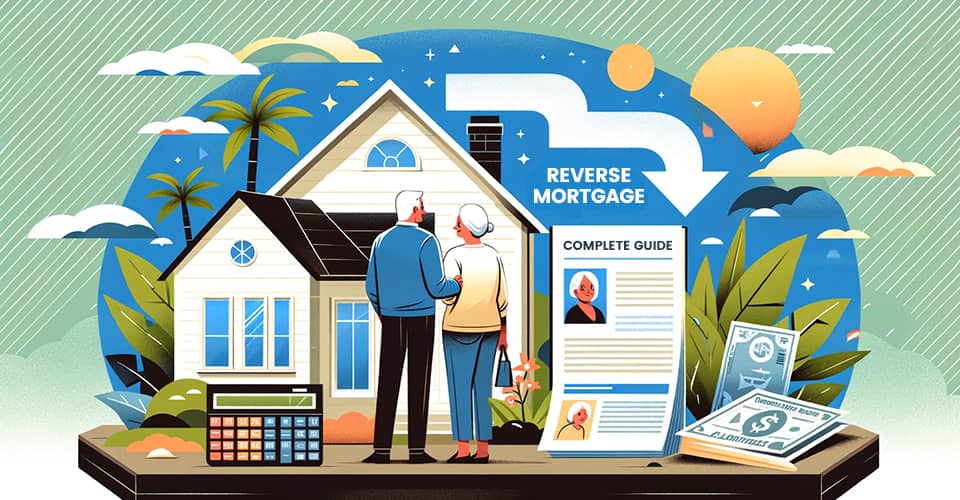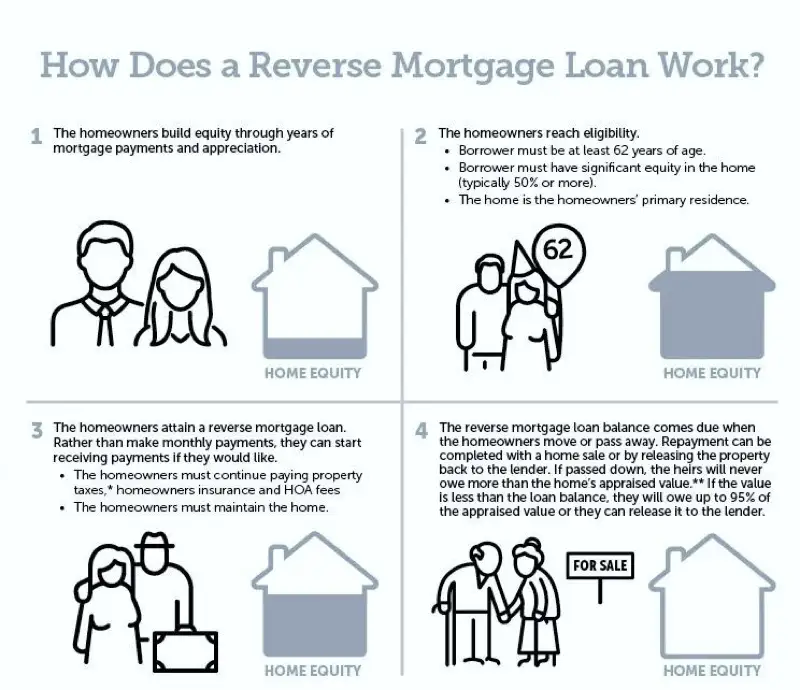Unlock Financial Liberty: Your Guide to Investing In a Reverse Home Loan
Understanding the ins and outs of reverse mortgages is necessary for property owners aged 62 and older looking for economic freedom. This unique economic instrument makes it possible for senior citizens to take advantage of their home equity, changing it into easily accessible cash money for various requirements, from healthcare to way of living enhancements. Browsing the qualification standards, prices, and benefits can be intricate. As you consider this choice, it is crucial to understand not just exactly how it functions yet additionally the effects it may carry your financial future. What are the crucial variables you should consider prior to making such an impactful choice?
What Is a Reverse Mortgage?

The basic charm of a reverse mortgage depends on its possible to enhance economic flexibility throughout retired life. Property owners can make use of the funds for various objectives, consisting of clinical expenditures, home enhancements, or daily living costs, therefore providing a security net throughout a critical point of life.
It is vital to recognize that while a reverse mortgage permits raised capital, it likewise lowers the equity in the home with time. As rate of interest gathers on the outstanding finance equilibrium, it is vital for prospective debtors to meticulously consider their long-term financial plans. Consulting with an economic consultant or a reverse home mortgage expert can offer useful understandings right into whether this alternative straightens with a person's financial goals and situations.
Eligibility Demands
Comprehending the eligibility demands for a reverse home loan is crucial for house owners considering this monetary choice. To qualify, applicants should be at least 62 years of ages, as this age standard permits elders to accessibility home equity without regular monthly home loan repayments. Additionally, the house owner needs to occupy the residence as their primary residence, which can consist of single-family homes, specific condominiums, and manufactured homes fulfilling details standards.
Equity in the home is one more vital demand; property owners normally need to have a significant quantity of equity, which can be established with an assessment. The quantity of equity offered will directly affect the reverse home mortgage quantity. Candidates must demonstrate the ability to preserve the home, including covering building taxes, homeowners insurance coverage, and maintenance expenses, making certain the home continues to be in great problem.
In addition, potential borrowers need to undergo a monetary analysis to evaluate their revenue, credit report, and general monetary circumstance. This assessment assists lenders establish the candidate's capability to meet continuous responsibilities associated with the property. Meeting these needs is crucial for safeguarding a reverse home mortgage and ensuring a smooth monetary shift.
Advantages of Reverse Home Loans
Numerous benefits make reverse home loans an enticing choice for senior citizens aiming to boost their economic flexibility. purchase reverse mortgage. Among the main benefits is the capacity to transform home equity right into cash money without the need for regular monthly mortgage repayments. This function permits seniors to access funds for numerous needs, such as medical expenses, home improvements, or daily living costs, therefore alleviating financial stress
Additionally, reverse home loans give a safety and security web; elders can remain to reside in their homes for as long as they meet the lending requirements, fostering security throughout retired life. The profits from a reverse home loan can likewise be used to postpone Social Safety benefits, potentially causing greater payouts later.
In addition, reverse home mortgages are non-recourse loans, suggesting that debtors will never ever owe even more than the home's value at the time of sale, protecting them and their successors from monetary liability. The funds obtained from a reverse home loan are generally tax-free, including another layer of economic relief. On the whole, these benefits placement reverse home loans as a functional solution for elders seeking to boost their financial scenario while maintaining their treasured home environment.

Prices and Charges Involved
When thinking about a reverse home mortgage, it's vital to know the various costs and charges that can influence the total monetary image. Understanding these costs is critical for making an informed decision regarding whether this monetary item is appropriate for you.
Among the primary costs associated with a reverse home loan is the source cost, which can differ by lending institution however generally varies from 0.5% to 2% of the home's appraised value. In addition, homeowners should prepare for closing expenses, which might include title insurance policy, evaluation fees, and credit history report costs, generally amounting to several thousand bucks.
One more considerable expenditure is home mortgage insurance policy reference costs (MIP), which shield the loan provider versus losses. This cost is generally 2% of the home's worth at closing, with a continuous annual premium of 0.5% of the remaining lending balance.
Lastly, it is very important to take into consideration recurring expenses, such as property taxes, property owner's important site insurance, and upkeep, as the debtor stays responsible for these expenditures. By meticulously examining these costs and expenses, homeowners can much better evaluate the financial effects of going after a reverse mortgage.
Actions to Start
Beginning with a reverse home loan entails a number of vital actions that can aid improve the procedure and ensure you make notified choices. First, examine your financial circumstance and establish if a reverse mortgage straightens with your long-term goals. This includes reviewing your home equity, current financial obligations, and the need for added income.
Next, research study numerous lenders and their offerings. Search for credible institutions with positive evaluations, clear cost structures, and competitive rates of interest. It's necessary to contrast conditions and terms to find the very best fit for your requirements.
After choosing a loan provider, you'll require to complete a detailed application process, which normally calls for documents of income, assets, and home details. Take part in a counseling session with a HUD-approved counselor, who will provide insights right into the effects and duties of a reverse home mortgage.
Verdict
In verdict, reverse home loans present a sensible alternative for elders looking for to enhance their economic stability throughout retirement. By converting home equity into easily accessible funds, property owners aged 62 and older can address numerous monetary requirements without the pressure of regular monthly repayments.
Understanding the ins and outs of reverse home mortgages is essential for home owners aged 62 and older looking for monetary flexibility.A reverse home mortgage is an economic item made mostly for homeowners aged 62 and older, enabling them to convert a part of their home equity right into money - purchase reverse mortgage. Consulting with a reverse mortgage or a monetary expert specialist can offer beneficial insights into whether this alternative aligns with an individual's monetary objectives and circumstances
Moreover, reverse home mortgages are non-recourse car loans, suggesting that borrowers will never owe even more than the home's worth Related Site at the time of sale, shielding them and their heirs from monetary obligation. Generally, these advantages placement reverse mortgages as a useful solution for elders seeking to improve their monetary situation while keeping their treasured home setting.